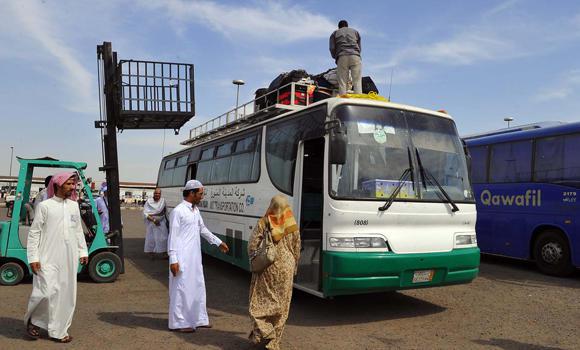
Jeddah, Sep 15: The Haj pilgrim transportation sector is in a dilemma. In a bid to provide employment to Saudi youth, the Ministry of Labor has made it mandatory for transport companies to hire only Saudis as bus drivers during the Haj season.
However, there is an acute shortage of Saudi applications for the vacant positions despite the incentives and attractive packages offered by transport companies.
As a result, the companies have resorted to recruiting drivers from outside the Kingdom.
Road transportation, in particular the bus service, is vital for Haj operations. Foreign pilgrims have to be transported to and from the airports to the holy cities. The SR10 billion transportation sector is run by more than 18 companies with a fleet of over 20,000 buses capable of accommodating up to 50 people each. Over 650,000 foreign pilgrims are transported within the Kingdom.
Most drivers come from Egypt, Syria and Sudan. They are paid on average SR1,500.
Companies in Makkah have launched a campaign to recruit Saudi youths for the position of drivers. For the past two months, they have been offering a salary of SR4,000 and other incentives. Although some Saudis have come forward, their numbers are insufficient. Most of these youths are students in Makkah.
Saad Jameel Qureshi, a businessman and chairman of the transportation committee in Makkah, said that companies had attracted approximately 2,500 Saudi youths for the Haj season.
The low turnout of Saudi applicants forced transport companies to approach the Ministry of Labor to supply the required number of drivers. Consequently, the ministry has allowed the companies to hire 22,000 drivers on a temporary basis from Arab countries for the Haj season.






.jpg)
.jpg)
Comments
Add new comment